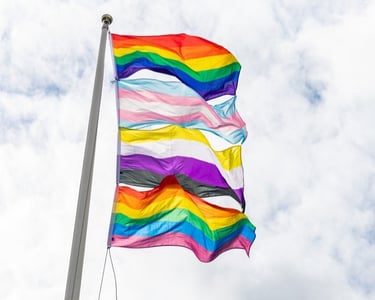Interview Study: Exploring Gender Diverse Experiences of Hereditary Cancer Risk

People with elevated cancer risk who identify as trans* or nonbinary
Study Contact Information:
Sarah Roth
Genetic Counseling Student, JHU/NIH Genetic Counseling Training Program
[email protected]
Phone: (727) 642-2356
About the Study
Are you a gender diverse or patient who would like to share your story? A Johns Hopkins genetic counseling student is conducting an interview study exploring gender diverse folks’ experiences of care, with the aim of better educating providers about LGBTQ+ needs and concerns. We are conducting interviews over Zoom with individuals who qualify. If you are interested in participating, please complete this short survey. NOTE: This study is no longer enrolling people.
This Study is Open To:
The participant guidelines for the study are as follows:
- You are 18 years or older
- You identify as trans* or nonbinary
AND at least ONE (1) of the following conditions:
- You have received counseling about hereditary risk of cancer
- You carry a mutation in the , , , , , or gene
- You have a personal history of cancer
- You have a family history of cancer
This Study is NOT Open To:
People are not eligible if:
- They are younger than 18
- They identify as
- They do not have any of the following conditions:
- have received counseling about hereditary risk of cancer
- carry a mutation in the , , , , , or gene
- have a personal history of cancer
- have a family history of cancer
What the Study Involves
If you agree to be in the study, we will ask you to take part in a 45-60 minute interview over Zoom. The interview will ask you some questions about your healthcare experiences. We will record and transcribe the interview.
Lead Researcher and Affiliation
Sarah Roth
Genetic Counseling Student, JHU/NIH Genetic Counseling Training Program
[email protected]
Phone: (727) 642-2356
Study Contact Information:
Sarah Roth
Genetic Counseling Student, JHU/NIH Genetic Counseling Training Program
[email protected]
Phone: (727) 642-2356
People with elevated cancer risk who identify as trans* or nonbinary
Study Contact Information:
Sarah Roth
Genetic Counseling Student, JHU/NIH Genetic Counseling Training Program
[email protected]
Phone: (727) 642-2356